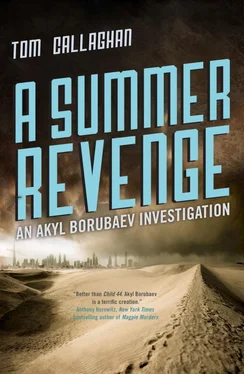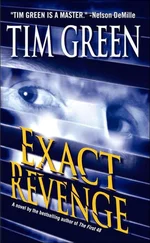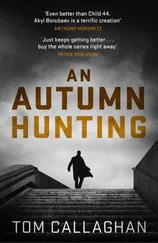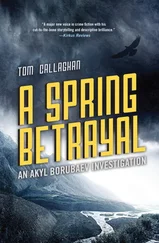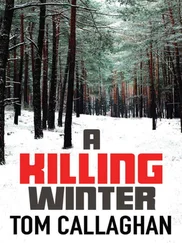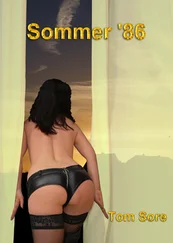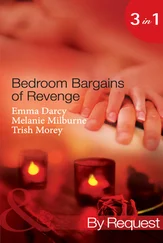“Maybe,” I replied, “but there’s a twist.”
I’d made the call, persuaded Boris that a highly visible yet secure location was the best way to get a result that would please both of us. I’d pointed out that in the heat of a Dubai summer it was extremely unlikely that anyone else was going to be walking across the bridge. It wasn’t the greatest plan anyone had ever had, but we were all operating under stress. I didn’t know what information the police had, but I was sure they had digital CCTV recordings of me during the mall shoot-out. The bridge was also bound to be monitored but that was a risk for both sides.
At six o’clock that evening I was standing on the Bur Dubai side of the creek, near the heavily guarded TV station. The events of the Arab Spring had shown governments the importance of keeping tight control of their media. Once dissidents in any country can broadcast their version of events—and prevent the government from showing theirs—then the existing regime is well on its way into the history books. I’d seen it happen in Kyrgyzstan, knew it could happen anywhere.
The concrete was hot beneath my shoes, proof of the brutality of a Gulf summer, and I had to squint to defeat the worst of the sunlight, even as the dusk crept up on me. I knew the risk I was taking, of a double-cross or a bullet, but I had to draw the Chechen out into the open. The only point in my favor was that I didn’t think he knew that it was Saltanat who was working with me.
Shortly I was above the water of the creek, and even with the perpetual whine of the traffic passing just a meter away, there was a curious kind of peace. It felt as if, among the skyscrapers and luxury cars, the endless roads and the expensive shopping, the water was one of the elements that hadn’t been tamed, just as it was a permanent battle for Dubai to keep the desert sand at bay.
The gun was heavy in my pocket, and the metal bumped against my hip with every step. I knew I couldn’t carry it in my hand—that would have brought immediate and unwelcome official attention—but the same would apply to Boris. Another reason why I’d suggested the bridge as our rendezvous.
The creek looked murky, uninviting, and I couldn’t help contrasting it to the sparkling cold water of Lake Issyk-Kul. Then it was time to forget my past, the joys, the pain, love and sorrow, and focus on the now, the minute, to make sure that minute wasn’t my last.
My heart was doing a drum solo deep in my chest, and the heat haze in the air did nothing to diminish my worries. When a Kyrgyz hunting eagle circles the air and rides the thermals to spot its prey, its vision is sharp enough to spot the slightest movement on the horizon. I didn’t have that clarity or that unthinking will, that single-minded determination.
Don’t think, I told myself, act. To think is to delay. To delay is to be weak. And to be weak is to wrap yourself in your own shroud.
My shirt stuck to my back, and not all of the sweat came from the heat of the sun. I felt as if I were walking in slow motion, or wading in water that reached my thighs. Stay in the moment, focus.
Don’t look at his eyes, Saltanat had told me, they’ll tell you nothing; watch his hands, watch for when they move. Don’t shift your gaze, don’t look down for your gun; draw, point your finger, not the gun; don’t fire too early or you’ll miss. Don’t fire too late or you’ll die. Make him disappear. All very easy for her to say, and do, but I’m not the trained assassin.
I was a third of the way across the bridge when I saw Boris walking toward me, a tall figure by his side. This far from the shore, a light breeze was doing its ineffectual best to cool the air. I started to speed up, wanting this to be over. Once I had Natasha, I planned to return to my hotel, pack and be on a plane that evening. It would be no problem getting a flight to Kazakhstan or Uzbekistan, then heading over the border. A diplomatic passport, no matter how temporary, smooths out any ethnic difficulties, even if you’re a former Bishkek Murder Squad inspector with a history.
I still didn’t know if I’d be able to persuade Natasha to come back to Bishkek with me, but I didn’t think she had a lot of alternative futures lined up. And if Tynaliev didn’t get any of his money back, I guessed neither of us would have a pleasant future, or a long-lasting one.
As we drew closer, I saw that Boris was wearing a tight-fitting T-shirt, to show that he wasn’t carrying, his hands clasped behind his head to emphasize the point. He was wearing sunglasses so I wouldn’t be able to see his eyes, even if I’d wanted to. Natasha walked behind him, dressed in one of the long, black, all-covering burkas that women wear in the Gulf. It made sense to make Natasha as inconspicuous as possible; a figure as spectacular as hers was bound to be noticed and commented upon. A scarf completed her outfit, together with sunglasses and scarlet lipstick.
A woman tourist was standing near the point where we would meet, large sunhat, even larger straw bag and one of those shapeless dresses that suggest middle age and multiple children. She was taking photographs of the creek, and I hoped she’d move on in the next couple of minutes. Otherwise she could become a complication, or even a victim if things turned difficult.
I turned to look behind me. No one, and no way of anyone taking me by surprise. My mouth was dry, whether with fear or expectation, I couldn’t tell. All I had to do was hand over the SIM card as Natasha walked past me and to freedom, albeit most likely short-lived.
Then, just as Boris and Natasha passed the woman photographer, I realized that something was wrong, that she was walking with a limp. Instead of her trademark heels, Natasha was wearing simple leather sandals and shuffling along as if unused to wearing them. My hand started to go for my gun, then froze as Natasha reached into her bag and pulled out a Glock 23, holding it down by her side, but aiming it at my chest. At the same time Boris stepped forward and to one side to give Natasha a clear shot.
In that instant I knew I was dead, that the .40 caliber bullet would tear through my lungs, my spine, snapping my life off as quickly and efficiently as breaking a rotten tree branch. I wondered if Natasha had made a deal with Boris, if he’d persuaded her that they could share the money and be rid of the Kyrgyz inspector at the same time. Maybe she could buy a luxury villa in Grozny, protected by the Chechens and all that money, free to go shopping on Fifth Avenue, Bond Street, the rue de Rivoli.
Then I realized that the figure in the burka wasn’t Natasha at all. I blinked, bracing myself for the impact of the shot, a blow I knew I could never survive at such close range.
And then the woman seemed to stagger, slump sideways. The Glock fell to the ground. She lurched toward the railings, leaning against them as if faint. The woman photographer in the shapeless dress walked past her, discreetly kicking the Glock over the side and into the creek, putting something back in her straw bag. Something sharp and deadly, if I knew Saltanat.
She passed without acknowledging me, just another tourist storing up memories of her holiday trip, probably making her way back to her hotel for a cold drink following by a trip to the spa.
Boris was walking rapidly away, the sort of speed that says you’ve just remembered an urgent appointment. I wondered about going after him, but shooting him wouldn’t find Natasha for me, and there was always the chance it might be me that took the bullet.
The woman shooter slumped against the railing, staring down at an abra with eyes that saw nothing. From a distance, she was just admiring the view. And distance was just what I wanted to put between the two of us.
Читать дальше
